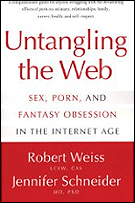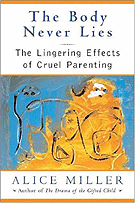Suggested Reading Material
A critical tool to tackling addiction is knowledge. Plainly put, it is important to get to your addition or the addiction or your partners or loved ones. The more you know about it, the easier it is to overcome. The books below are divided into books for the addict and for partners and family members of addicts.
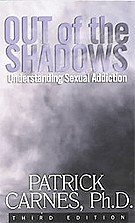 Patrick Carnes, Out of the Shadows, A classic text that was first published in 1983 that outlines the various levels of sexual addiction, the addiction cycle and various other helpful information for the addict and family of the addict.
Patrick Carnes, Out of the Shadows, A classic text that was first published in 1983 that outlines the various levels of sexual addiction, the addiction cycle and various other helpful information for the addict and family of the addict.
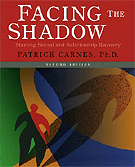 Patrick Carnes, Facing the Shadow, This is Dr. Carnes comprehensive workbork for tackling sex addiction. Carnes has a model that is broken down into seven different tasks.
Patrick Carnes, Facing the Shadow, This is Dr. Carnes comprehensive workbork for tackling sex addiction. Carnes has a model that is broken down into seven different tasks.
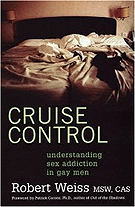 Robert Weiss, Cruise Control: Understanding Sex Addiction in Gay Men, Robert Weiss, Executive Director of the Sexual Recovery Institute in Santa Monica, California, avoids political and moral arguments and instead focuses on the clinical approach, asking the question, “Is your sexual behavior causing problems in other areas of your life?” Cruise Control leads men to a better understanding of the difference between sexual compulsion and non-addictive sexual behavior within the gay experience, and it explains what resources are available for recovery. A timely and important contribution to the body of recovery literature, Cruise Control provides understanding, empathy and encouragement to gay men seeking healthy sexual.
Robert Weiss, Cruise Control: Understanding Sex Addiction in Gay Men, Robert Weiss, Executive Director of the Sexual Recovery Institute in Santa Monica, California, avoids political and moral arguments and instead focuses on the clinical approach, asking the question, “Is your sexual behavior causing problems in other areas of your life?” Cruise Control leads men to a better understanding of the difference between sexual compulsion and non-addictive sexual behavior within the gay experience, and it explains what resources are available for recovery. A timely and important contribution to the body of recovery literature, Cruise Control provides understanding, empathy and encouragement to gay men seeking healthy sexual.
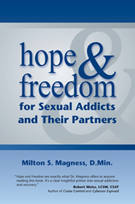 Dr. Milton S. Magness, In Hope and Freedom , takes sexual addicts and their partners step by step through the various phases of addiction recovery. He gently guides his patients through the therapeutic process with compassion, understanding and experience. Dr. Magness explains the value of each step in the recovery process, including disclosure, polygraph use, and his FASTT check-in procedure. When couples follow the program that Dr. Magness lays out in this book, they regain their HOPE of FREEDOM in recovery from sexual addiction.
Dr. Milton S. Magness, In Hope and Freedom , takes sexual addicts and their partners step by step through the various phases of addiction recovery. He gently guides his patients through the therapeutic process with compassion, understanding and experience. Dr. Magness explains the value of each step in the recovery process, including disclosure, polygraph use, and his FASTT check-in procedure. When couples follow the program that Dr. Magness lays out in this book, they regain their HOPE of FREEDOM in recovery from sexual addiction.
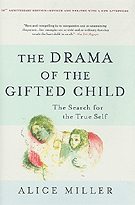 Alice Miller, The Drama of the Gifted Child, is the groundbreaking work in which Miller overcomes the obstacles of culture, upbringing, and her own psychoanalytic training to discover the childhood wounds underlying depression, grandiosity, and other symptoms of mental illness. If you read any book from this list, read this one.
Alice Miller, The Drama of the Gifted Child, is the groundbreaking work in which Miller overcomes the obstacles of culture, upbringing, and her own psychoanalytic training to discover the childhood wounds underlying depression, grandiosity, and other symptoms of mental illness. If you read any book from this list, read this one.
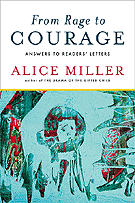 Alice Miller, From Rage to Courage, is a direct, challenging and passionate collection of Miller’s responses to inquiries from her readers.
Alice Miller, From Rage to Courage, is a direct, challenging and passionate collection of Miller’s responses to inquiries from her readers.
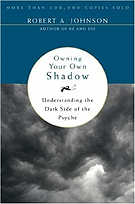 Robert A. Johnson, Owning Your Own Shadow: Understanding the Dark Side of Your Psyche, examines the dangers of denying one’s own dark side, the futility of eliminating the dark side, and the means of integrating the shadow into one’s life.
Robert A. Johnson, Owning Your Own Shadow: Understanding the Dark Side of Your Psyche, examines the dangers of denying one’s own dark side, the futility of eliminating the dark side, and the means of integrating the shadow into one’s life.
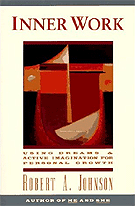 Robert A. Johnson, Inner Work, an extremely helpful guide to gaining access to the unconscious and to working with dreams.
Robert A. Johnson, Inner Work, an extremely helpful guide to gaining access to the unconscious and to working with dreams.
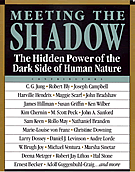 Connie Zweig and Jeremiah Abrams, eds., Meeting the Shadow: The Hidden Power of the Dark Side of Human Nature, a great collection of 65 brief essays by Robert Bly, Carl Jung, and many others about dealing skillfully and creatively with the material in our shadow sides.
Connie Zweig and Jeremiah Abrams, eds., Meeting the Shadow: The Hidden Power of the Dark Side of Human Nature, a great collection of 65 brief essays by Robert Bly, Carl Jung, and many others about dealing skillfully and creatively with the material in our shadow sides.
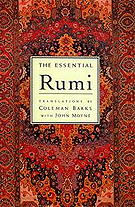 Coleman Barks , trans., The Essential Rumi. Rumi is the Sufi mystic poet, set on fire by the dervish Shams of Tabriz, who burns with yearning and desire. To live in sexual sobriety, one must be willing like Rumi to burn and whirl in that intense Love-longing. Authentic sobriety is a fierce and powerful expression of that longing which must be embraced. Avoidance of that deep wound, that deep yearning, keeps one trapped in depression and the less-than of addictive escape.
Coleman Barks , trans., The Essential Rumi. Rumi is the Sufi mystic poet, set on fire by the dervish Shams of Tabriz, who burns with yearning and desire. To live in sexual sobriety, one must be willing like Rumi to burn and whirl in that intense Love-longing. Authentic sobriety is a fierce and powerful expression of that longing which must be embraced. Avoidance of that deep wound, that deep yearning, keeps one trapped in depression and the less-than of addictive escape.
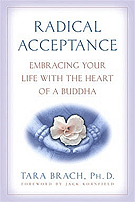 Tara Brach, Radical Acceptance, is a tremendous grounding guide for staying with your inner experience, breathing, and leaning into the fire of whatever comes up inside.
Tara Brach, Radical Acceptance, is a tremendous grounding guide for staying with your inner experience, breathing, and leaning into the fire of whatever comes up inside.
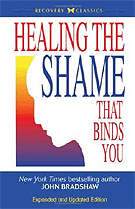 John Bradshaw, Healing the Shame That Binds You, a classic in the twelve-step world, providing effective and practical exercises for understanding “toxic shame” and freeing oneself form its effects.
John Bradshaw, Healing the Shame That Binds You, a classic in the twelve-step world, providing effective and practical exercises for understanding “toxic shame” and freeing oneself form its effects.
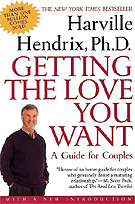 Harville Hendrix, Getting the Love You Want, presents the theory and practice of the Imago therapy model for couples. Hendrix demonstrates how our unique histories and childhood experiences drive our selection of romantic partners, how the disillusionment which inevitably ensues when romance fades provides the opportunity to consciously support each other in attending to our childhood needs and meeting our adult needs.
Harville Hendrix, Getting the Love You Want, presents the theory and practice of the Imago therapy model for couples. Hendrix demonstrates how our unique histories and childhood experiences drive our selection of romantic partners, how the disillusionment which inevitably ensues when romance fades provides the opportunity to consciously support each other in attending to our childhood needs and meeting our adult needs.

